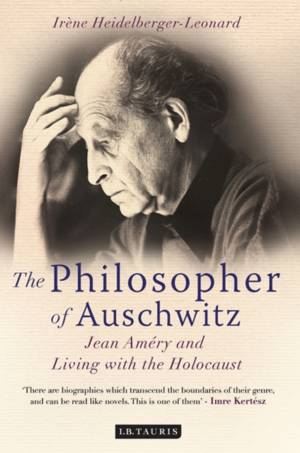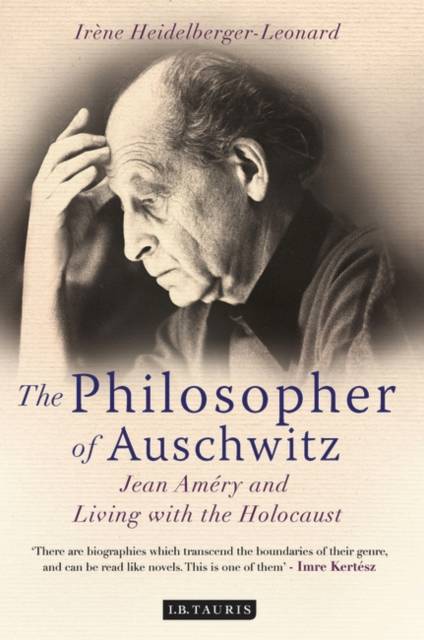
Bedankt voor het vertrouwen het afgelopen jaar! Om jou te bedanken bieden we GRATIS verzending (in België) aan op alles gedurende de hele maand januari.
- Afhalen na 1 uur in een winkel met voorraad
- In januari gratis thuislevering in België
- Ruim aanbod met 7 miljoen producten
Bedankt voor het vertrouwen het afgelopen jaar! Om jou te bedanken bieden we GRATIS verzending (in België) aan op alles gedurende de hele maand januari.
- Afhalen na 1 uur in een winkel met voorraad
- In januari gratis thuislevering in België
- Ruim aanbod met 7 miljoen producten
Zoeken
The Philosopher of Auschwitz
Jean Améry and Living with the Holocaust
Irène Heidelberger-Leonard
Hardcover | Engels
€ 103,45
+ 206 punten
Omschrijving
Who was Jean Amery? Victim or survivor? Agnostic or Jew? Austrian or exile? Philosopher or journalist? Jean Amery is not easy to classify but what this biography (the first in any language) demonstrates is that he is more - far more - than some enigmatic cult figure: he is one of the most influential of Holocaust survivors and one of the most provocative writers and thinkers of the 20th century. Jean Amery - born Hans Maier in Austria in 1912 - is perhaps best known for his seminal work, "At the Mind's Limits", one of the central texts on what Amery himself described as 'the subjective state of the victim.' But as Irene Heidelberger-Leonard's book reveals, Amery was not just a 'professional concentration camper', as he sometimes dubbed himself in a mixture of mockery and resignation. Drawing on a wide range of previously unpublished documents, Heidelberger-Leonard illuminates the turbulent life of this complex figure, from his middle class origins in pre-war Austria; his flight from his homeland to join the Resistance; his imprisonment in Auschwitz and Belsen; to his eventual suicide in 1978.
This definitive biography examines how Amery grappled with what it meant to be both a victim and survivor of the concentration camps and what his experiences there reveal about the tension between human dignity and the reality of horror. Focusing chiefly on Amery's literary works, one of the book's great strengths lies in exploring how every aspect of Amery's life and thought is inextricably connected with his writings. This biography brilliantly demonstrates the importance of Amery in his own time and shows how his relevance extends far beyond.
This definitive biography examines how Amery grappled with what it meant to be both a victim and survivor of the concentration camps and what his experiences there reveal about the tension between human dignity and the reality of horror. Focusing chiefly on Amery's literary works, one of the book's great strengths lies in exploring how every aspect of Amery's life and thought is inextricably connected with his writings. This biography brilliantly demonstrates the importance of Amery in his own time and shows how his relevance extends far beyond.
Specificaties
Betrokkenen
- Auteur(s):
- Vertaler(s):
- Uitgeverij:
Inhoud
- Aantal bladzijden:
- 320
- Taal:
- Engels
Eigenschappen
- Productcode (EAN):
- 9781848851504
- Verschijningsdatum:
- 31/08/2010
- Uitvoering:
- Hardcover
- Formaat:
- Genaaid
- Afmetingen:
- 157 mm x 236 mm
- Gewicht:
- 639 g

Alleen bij Standaard Boekhandel
+ 206 punten op je klantenkaart van Standaard Boekhandel
Beoordelingen
We publiceren alleen reviews die voldoen aan de voorwaarden voor reviews. Bekijk onze voorwaarden voor reviews.









